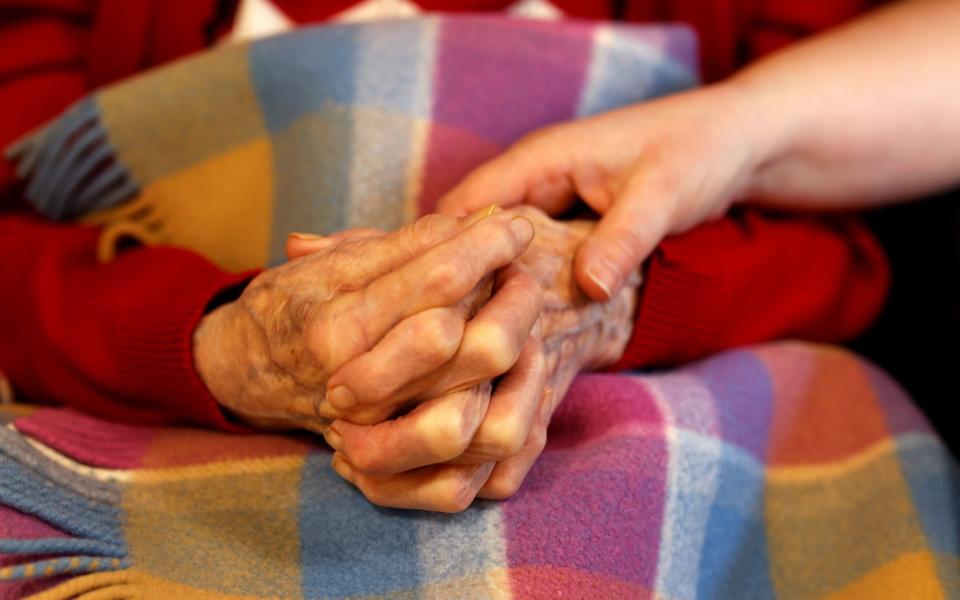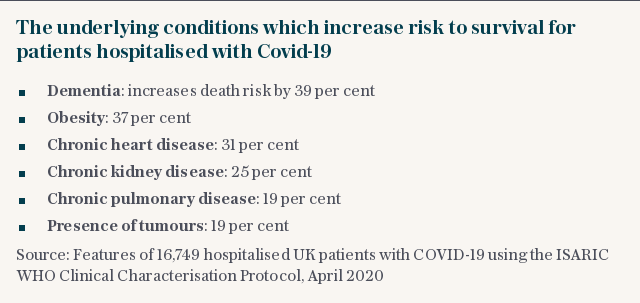More than 5,000 needless dementia and Alzheimer's deaths since March, ONS data shows


More than 5,000 dementia and Alzheimer’s patients have died needlessly since March, new figures suggest, as charities warned that being separated from loved ones, and disrupted routines, could be to partly to blame.
There were 5,404 extra deaths of dementia sufferers in England and Wales from March 7 to May 1, compared to the five-year average for the same time period, the Office of National Statistics (ONS) data shows.
It is a rise of 52 per cent compared to what would normally be expected and dementia patients now account for 40 per cent of the total number of non-Covid-19 excess deaths. The vast majority of the excess deaths occurred in care homes.
Samantha Benham-Hermetz, Director of Policy and Public Affairs at Alzheimer’s Research UK, warned that lower staffing levels, and being kept apart from friends and family during lockdown could be responsible for the high numbers.
“Every day we are seeing alarming new figures and stories that reveal the tragic impact dementia is having on people, both on those with and without Covid-19,” she said.
“We know that social isolation, losing routine and companionship from loved ones can be very difficult for people with dementia.
“We also need to understand the impact of changing staffing levels and access to appropriate medical care in care homes at this time. It may also be the case that people are delaying seeking medical help, through fear of Covid-19.
Although the ONS said that some of the deaths could be undiagnosed Covid-19, they accepted that some may be caused by the disruption from social distancing and lockdown.

“The sudden rise in deaths due to dementia and Alzheimer disease is so sharp that it is implausible that the full increase observed could have happened by chance,” said a spokesman.
“Care home residents have experienced changes to their usual routine as a result of measures to tackle the coronavirus pandemic. Adverse effects of such changes cannot be discounted as another possible explanation of the increase in the number of deaths in care homes.”
Charities said it was crucial to increase testing in care homes to find out whether the unexplained deaths were due to coronavirus.
The figures are the first detailed analysis from the ONS looking at the increased number of deaths during the pandemic where coronavirus was not mentioned on the death certificate.
It found that 28 per cent of excess deaths registered between March 7 and May 1 in England and Wales did not involve coronavirus - a total of 12,900 deaths out of 46,380.
Deaths related to asthma and diabetes are also occurring at a "significantly higher rate compared to the five-year average" and could indicate that some people with these conditions are not receiving care fast enough to prevent death taking place, due to extra pressures on the healthcare system.
Deaths from ischaemic heart disease and other forms of circulatory disease, stroke, meningitis and appendicitis have all risen, suggesting people "are not receiving care fast enough".
The highest number of excess non-Covid-19 deaths have taken place in care homes, with a weekly maximum of 2,975 of these deaths being registered in the seven days to April 17.
Non-Covid-19 deaths in private homes saw a separate peak in the week ending April 24, when 1,760 were registered.
The ONS said that if patients have been discharged from hospital sooner than usual, because of pressure on the NHS's resources, this "could have resulted in some deaths occurring in care homes or private homes that would have otherwise occurred in hospital".
The ONS said it was unclear whether stress-related causes linked to social distancing and isolation were a factor in the overall excess non Covid-19 deaths.

